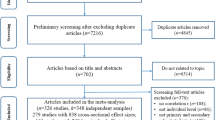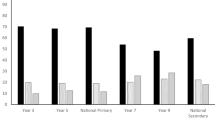Abstract
Program diversity in academic systems has become an important goal of higher education policy in many countries. Policy makers assume that a diverse academic system will better satisfy public preferences and needs and lead to greater social and economic benefits for society. While these assumptions adopt a recognizably economic perspective, very little of the literature on program diversity in higher education applies economic theory or methods as a means of framing relevant research. The article suggests that an economic perspective would define and measure academic diversity in terms of program innovation in academic institutions, not only in teaching, research and public service activities, but also in the processes of production and markets served. An economic perspective can also provide valuable theoretical frameworks for exploring the important question as to whether and how markets or governments affect program innovation in higher education.
Similar content being viewed by others
Author information
Authors and Affiliations
Corresponding author
Rights and permissions
About this article
Cite this article
Dill, D., Teixeira, P. Program diversity in higher education: an economic perspective. High Educ Policy 13, 99–117 (2000). https://doi.org/10.1016/S0952-8733(99)00026-4
Published:
Issue Date:
DOI: https://doi.org/10.1016/S0952-8733(99)00026-4




